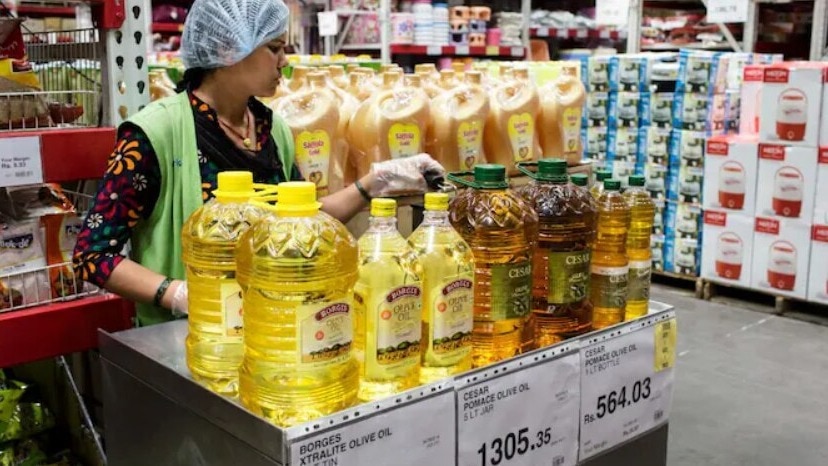In a major policy move aimed at containing food inflation and boosting domestic refining, the Centre has reduced the Basic Customs Duty (BCD) on crude edible oils—including crude sunflower, soybean, and palm oils—from 20% to 10%. The decision effectively raises the duty differential between crude and refined edible oils from 8.75% to 19.25%, making imports of refined oils less attractive.
The revised duty structure, announced after a comprehensive review of escalating edible oil prices, is expected to lower the landed cost of crude oils and reduce retail prices for consumers. The government had previously hiked duties in September 2024, a move that, combined with rising international prices, led to a sharp spike in domestic edible oil rates and contributed significantly to food inflation.
“This adjustment is meant to stabilize edible oil prices and ensure that consumers receive the full benefit of the reduced duty,” said the Department of Food and Public Distribution (DFPD), which convened a high-level meeting with leading edible oil associations and industry stakeholders earlier this week. During the meeting, industry players were advised to immediately revise the Price to Distributors (PTD) and Maximum Retail Prices (MRP) in line with the reduced import costs.
The government has asked edible oil associations to instruct their members to pass on the benefit to consumers without delay. Updated brand-wise MRP sheets are to be shared weekly with the DFPD, which has already issued a standard format for data collection.
Officials noted that the widened 19.25% duty differential will help redirect demand toward crude edible oils—particularly Crude Palm Oil—thereby strengthening domestic refining capacity while discouraging imports of refined oils like Palmolein. This shift is expected to not only enhance the viability of domestic refineries but also maintain fair price realization for farmers.
“Import duty on edible oils directly affects their landed cost and thereby impacts domestic prices. By reducing duty on crude oils, we are supporting both consumers and the domestic refining industry,” the DFPD said in its statement.
The Centre stressed that the timely transmission of these benefits through the supply chain is critical. Retail prices are expected to ease in the coming weeks if the industry complies with the advisory, providing much-needed relief to households grappling with high food prices.







